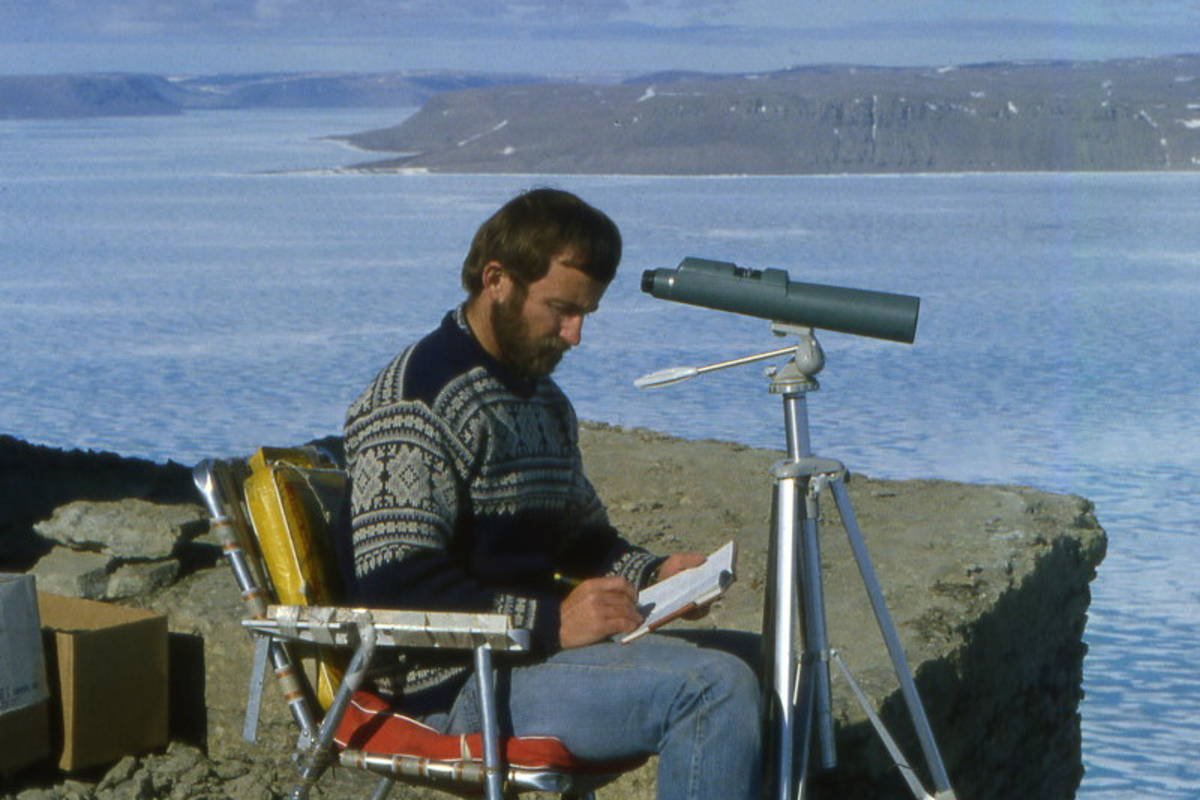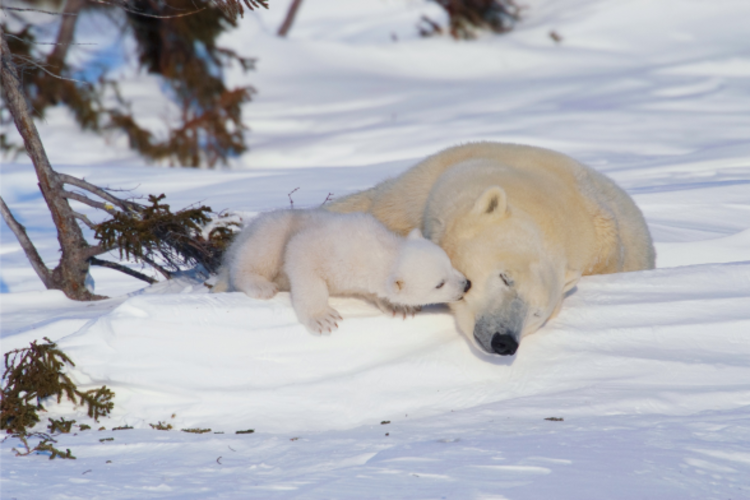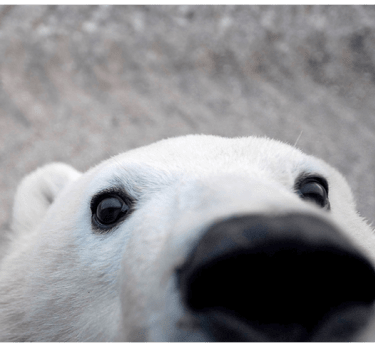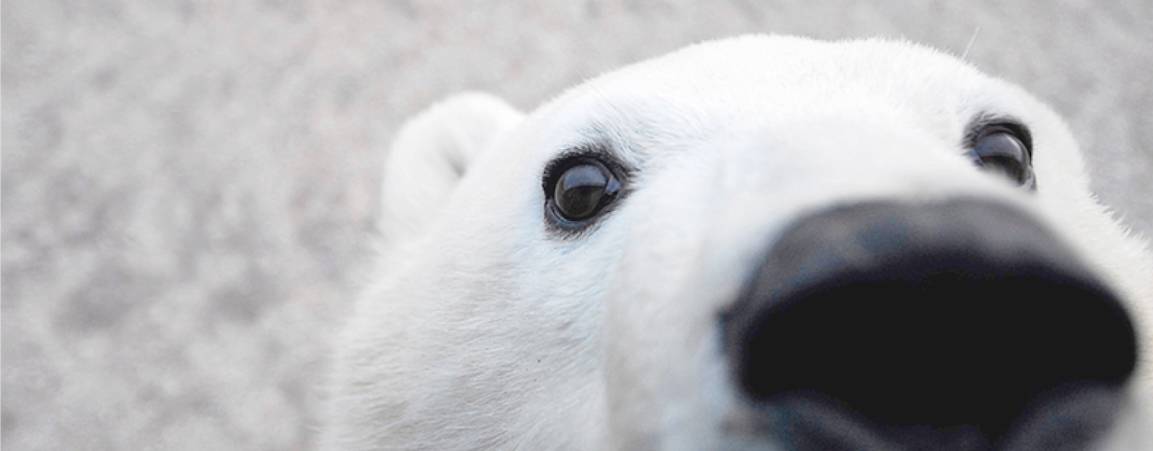Dr. Stanislav Belikov, All-Russian Research Institute for Environment Protection
“I was sad to learn of the passing of Ian Stirling. This is very sad news for all his friends and colleagues who knew him. A friendly attitude towards people, a willingness to help, was always inherent in Ian. There is also no doubt that he was a scientist of rare talent who made a huge contribution to the study and conservation of the polar bear. This is how we will always remember him.”
Dr. Kristin L. Laidre, University of Washington
“It's hard to capture Ian's legacy in just a few sentences. I have a feeling Ian touched almost everyone connected to polar bear science in the last five decades. Everyone I know has stories about Ian's dedication, enthusiasm, generosity, kindness, and work ethic. This is exactly what I experienced in our collaborations. Working on science with Ian will be among the things I consider a highlight of my career.”
Dr. Jon Aars, Norwegian Polar Institute
“Nobody knew more about polar bear ecology than Ian Stirling. Early in his career, he acknowledged the importance of observational data, and learned to know polar bears through hundreds of hours following them as they hunted on the sea ice. At the same time, he was a pioneer who led capture-recapture studies of polar bears in Canada.
“Ian was a person whom everyone liked. He was direct and honest, and passionate about science and the importance it had as a basis for management. Ian was also a very good listener, always eager to hear about what other people were doing, had learned, or thought. Ian often talked about the importance of publishing everything, from studies on larger data sets to interesting observations. In addition to his two brilliant books on polar bear biology, he left us with a long list of important papers. Without what Ian contributed, we would know much less about polar bears today.”
Dr. Steven Amtrup, Polar Bears International
“In 1980, when I was tasked with developing a comprehensive polar bear research program for the federal government in Alaska, most of what I knew about the bears came from reading Ian Stirling’s papers. Ian’s work with polar bears in Hudson Bay provided the foundation on which my research in Alaska, his research in other parts of Canada, and indeed that of other researchers around the world has been built. As the outside examiner during my PhD program and in the subsequent years, Ian always provided thought-provoking advice and counsel on professional as well as personal topics. Few in any branch of science can match Ian’s volume of publications or the number of students he has guided into productive careers. I feel lucky to have benefited personally from Ian’s guidance, and I know that the giant footprints he leaves will guide others for decades to come.”
Cheryl Spencer, Research Assistant, Environment and Climate Change Canada and Polar Bears International
“Working closely with Ian Stirling as his research assistant for 44 years was an honor and a privilege. He was truly passionate about Arctic science and conservation. Recently, we were working with observational data on the natural behavior of polar bears in the High Arctic. Ian spearheaded this work from remote camps he built from the 1970s to the late 1990s. He was an inspirational mentor to so many and will be greatly missed.”
Sarah Jeffery, Photographer
Ian Stirling was a wonderful man—he was on board my first Svalbard trip and I treasure my copy of his incredibly thorough book on polar bears. I will never forget him dropping his field note book overboard in excitement at a bear’s antics and it having to be fished out and dried due to the value it contained!
Larissa Thelin, M.Sc. Graduate, University of Alberta
“I’m still wrapping my head around the loss of Dr. Ian Stirling, one of the first people to ever study polar bears. Ian and Dr. Andrew Derocher (my MSc supervisor at the University of Alberta) published the first paper that discussed how climate change may impact polar bears. They’d go on to dedicate their lives to understanding that.
“Ian was heavily involved in my MSc thesis from the very beginning. I remember meeting him in the first couple of months and being awestruck that I got to meet him, let alone have him offer his expertise to my study. Covid made it difficult to pick his brain the way I wanted, but he always answered emails thoughtfully and enthusiastically. He gave me lengthy comments on draft after draft of my thesis and then manuscript. I was very aware of the time he took to uplift the work of a new researcher like me. From stories I’ve heard the last couple days, I can see he did that for many, many students over the years.
“Ian, thank you for your advice and help in my work. Mostly, thank you for your lifetime of work on polar bears. You’ve left many people in your wake, ready and willing to advocate for these bears in your absence.”
Cassandra Debets, University of Manitoba and Polar Bears International
One of my favorite Ian stories comes from 2013 when the old Polar Bears International house was on Kelsey Boulevard in Churchill. Ian and I were doing dishes after dinner and chatting about the citizen science project I was working on and just polar bear condition in general. Ian must have become so excited that he dropped a glass lasagna pan on plates in the sink and everything shattered, causing everyone to look up. Without missing a beat he pointed to me and said, “She did it,” and then chuckled to himself.
This story captures all I know of Ian: 1. dedication to young scientists 2. kindness to chat and make time for polar bear science, always 3. his sense of humor.


















